Born in Bellefonte, PA, in 1832, Austin Owen Furst was the son of John Furst and Barbara Shuman. He is my husband’s great-grandfather.
Birth
Austin Owen Furst was born on April 11, 1832 in Clinton County, PA.
Marriage
Austin Owen Furst was married twice, first to Frances H. Sanderson on 09 May 1867. She died on 27 Sep 1877. Secondly, Austin married Caroline Watson Chamberlin on December 17, 1878.
Children
Austin had six children total with his two wives.
With Frances H. Sanderson
- William Sanderson Furst, born June 12, 1868; died August 7, 1933. Married Mary Watson Shantz on November 6, 1902.
- John Shuman Furst, born April 19, 1871.
With Caroline Watson Chamberlin
Austin had four children with his second wife Caroline. They were all born in Bellefonte, PA.
- Jane Watson Furst, born October 11, 1879; married John Curtin on September 5, 1906; died January 21, 1934 in Lock Haven, Clinton, Pennsylvania.
- Edith Barrie Furst, born July 28, 1881; died November 24, 1884, at three years of age.
The public will deeply sympathize with Hon. A. O. Furst, president-judge elect of this judicial district, in the loss of his dear little four year old daughter, Edith, who died on Monday last of malignant diphtheria. Following right upon the heels of the honor decreed him by the people of the 49th district, this sad event proves that earthly honors are no shield against the approach of the great Destroyer. But while we all sympathize with Judge Furst and his wife in this terrible affliction, and sincerely condole with them, let in hope that, as time mellows the great bereavement, the recollection of the dear little girl, with her innocent way, may all the better fit him for the faithful discharge of the great duties that will soon devolve upon him. And, as be thinks of the sweet child standing in Heaven’s portal, stretching forth her little bands and saying as she looks down upon the scenes she so well loved below, “O, Papa, Mamma, come up here,” may be from his overburdened heart be enabled to cry out, “Not our will but Thine, O God, be done.” Democratic Watchman Nov. 28, 1884
- James Chamberlin Furst, born December 1, 1882; married Mary Adele Harrar on April 30, 1913; died June 6, 1968.
- Walter Benedict Furst, born 02 May 1887; married Edith Whittier on June 5, 1915.
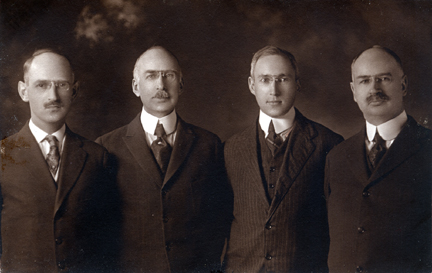
Furst Brothers, left to right: James C. Furst; John “Jack” Sanderson Furst; Walter “Bud” Furst; William Sanderson Furst.
Biography
From the Commemorative Biographical Record of Central Pennsylvania, J. H. Beers & Co., 1898, Pages 51-54
JUDGE AUSTIN O. FURST
Every profession has its prominent men; some made such by long membership, and others by their proficiency in their calling. The subject of this sketch is made conspicuous among the jurists of Centre county both by the length of time he has devoted to the pursuit, and by the eminent success he has made of it. He is one of those men who may be said to have chosen well in the selection of a profession. Possessed of a keen sense of discrimination, mature judgment and a natural taste for the various branches of legal business, he has by years of study and practice placed himself among the foremost members of the learned Bar of the great State of Pennsylvania. Judge Furst has descended from honored forefathers who came to America from Holland after the Reformation, his paternal ancestors being followers of Martin Luther. John George Furst, the grandfather of Judge Furst, purchased from the Commonwealth of Pennsylvania a large tract of land in the eastern portion of Nittany Valley, which he laid out into farms for his four sons- George, John, Samuel and Thomas-and daughter- Catherine. These sons and daughter were reared in the Valley referred to, married there, and settled on that tract of land. George, however, afterward located in the vicinity of Freeport, Ill., where he passed the rest of his days. Two of the sons, Samuel and Thomas, were noted hunters of this section of the country, in which they were reared. The five children above named were strongly attached to the Church of their forefathers. John George Furst died in Clinton county (formerly Centre in 1821, and his wife, Agnes, in 1813. John Furst, the second son of John George Furst, and the father of Judge Furst, was born in the Susquehanna Valley, August I 8, 1785, and was given one of the farms referred to, on which he resided until his death, which occurred April 14, 1859, when he was nearly seventy-four years old. He was a man of ordinary education, but possessed good common sense; a man of practical ideas which made him a useful citizen, and he was a lifelong agriculturist. He was interested, and took an active part, in the local affairs of the county; was a Jacksonian Democrat, and in his religious views was a Lutheran. His wife, Barbara (Shuman), was a daughter of John and Catherine Shuman, of Millerstown, Perry county, this State. John Shuman died March 7. 1807, aged forty-five years, his wife, Catherine, passing away in 1826, at the age of sixty years. In religious faith the Shumans were Methodists. To the marriage of John Furst and Barbara Shuman were born eleven children, Judge Furst being next to the youngest. The mother, who was a woman of great force of character, lived to the advanced age of eighty seven years, being remarkably well-preserved both physically and mentally. Her death, occurred September g, 1878. One of her sons, John S., was a very successful merchant, and one >f the most influential men of Clinton county, an ardent Republican, and an elder of the Presbyterian Church. Judge Austin O. Furst, the subject proper of this sketch, is a native of the State, born on his father’s farm in Lamar township, Clinton county, in the east end of Nittany Valley. In the schools of the neighborhood he acquired his early education, after which he went to the academy in Salona, conducted by Prof. McGuire and Prof. Carrier, respectively. Later he entered Dickinson Seminary, at Williamsport, from which he was graduated in 1853, with the honors of the class. In the fall of that year he entered the junior class. of Dickinson College, Carlisle, Penn., but after a brief period sickness caused him to leave. Returning home, he in 1858 began the study of law in the office of his brother, Cline G. Furst, Esq., at Lock Haven, Penn., and he was admitted to the Bar of Clinton County at the September term, 1860. A short time afterward he located at Bellefonte, and at the January term of Court in 1861, he was on motion made by the late Hon. H. N. McAllister, admitted to the Bar of Centre County, and has ever since followed the profession of law. Prior to the session of the State Legislature of 1882-83, Centre county was a part of the Twenty-fifth Judicial District. At that session Centre and Huntingdon counties were united, and constituted the Forty-ninth Judicial District, Judge Mayer continued as president-judge of the- Twenty-fifth District, composed of the counties of Clinton, Elk and Cameron, and Judge Orvis, who was the additional law judge of the old Twenty-fifth, became president-judge of the Forty-ninth. In the fall of 1883 he resigned, and Judge Hoy was appointed by Gov. Pattison. He continued as president-judge of the Forty ninth District until the first Monday of January, 1885. At the general election of I 884 Austin O. Furst was elected president-judge, entered upon the duties of the office on the first Monday of January, 1585, and continued in service for a period of ten years, his term of office expiring on the first Monday of January, 1895, since which time he has engaged in the practice of his profession. He has an office in Bellefonte, one in Huntingdon, and one in Philadelphia, the last being in connection with his son, William S. Furst, as senior counsel. Prior to the Judge’s elevation to the Bench, he was engaged in many important suits both in equity and law, as well as in the criminal courts, and was often pitted against the foremost lawyers of this section of the State, and has been constantly associated in cases with them. The district was a very large and important one, comprising a population of 80,000 people, and during his judicial term a great many corporation cases were tried in court, besides an unusual number of homicide cases. The most interesting of the latter class was that of Alfred Andrews, a young Englishman, who was tried at Bellefonte, at the January session, 1890, which case lasted for six days, and which was closely listened to by a crowded court-room daily. It resulted in a verdict of murder in the first degree. The Judge’s pathetic and touching address to the prisoner before pronouncing sentence was highly commended and considered by the profession as an expression of high order of thought and language. Addressing the prisoner, the Judge said:
It is seldom, and hitherto unknown in this county, that one so young as you has committed a crime so revolting in its details. Lying in wait for your victim, and with the frenzy of lust in your heart, without a moment’s warning, you made your assault, and to cover your shame, you added to your attempt at rape the foul crime of murder. No wonder that this community stood a not surprising that the officers of hast at your crime. It is not surprising that the officers of the law were vigilant in seeking you out and bringing you here to answer for that crime. It is sad indeed to think of the deed you have committed. Without pity or mercy you made a criminal assault upon Clara Price, and failing in your brutal attempt, you took her life to suppress the evidence of your guilt. She was a beautiful young lady, just ripening into womanhood pure and virtuous and happy in the bright prospects of life before her. Alone and unprotected in a lonely place, you made your assault upon her. She sacrificed her young life to save her virtue. Her noble efforts to protect her honor and purity ought to be written in granite above her grave. The law, in mercy, hitherto, has extended to you every means to prove your defense: it has thrown around you the presumption of innocence. It has given you a jury of your own selection; it has required the Commonwealth to prove you guilty beyond a reasonable doubt. You have had the benefit of able counsel and the process of the law to compel the attendance of your witnesses; the county has furnished means for your defense; you have had a patient, fair and impartial trial before a jury of your peers – the jury has found you guilty of murder in the first degree; no other verdict could have justly been rendered under the evidence. The truth of the verdict has been made manifest by your own confession since the language of the law has been changed. It now demands that satisfaction shall be done. You have forfeited your life to the law, and justice requires that forfeit shall be paid. While you cannot restore the innocent life you have taken, the law requires that society shall be protected from the assassin and murderer, and that your ignominious death upon the scaffold shall be a warning and a terror to the evildoer. You need not expect or hope for a change in the verdict, by an appeal to any earthly tribunal. No constituted authority in the land can read the record of your trial without pronouncing your guilt. There is no appeal left for you, but to your God. To Him and Him alone may your appeal for mercy be made. That mercy, while you denied your helpless victim, may yet through sincere repentance and faith in Christ be accorded to you. We earnestly commend you to a merciful God, who, in his infinite love granted pardon to the thief upon the cross, and who is able to save the penitent, however wicked he may have been. We have no desire to review the facts in connection with your crime. The confession you have made relieves the court from further delay in your case. It now remains only to pronounce the death sentence according to law. The sentence of the law is that you, Alfred Andrews, the prisoner at the bar, be taken hence to the jail of Centre county, whence you came, and from thence to the place of execution, designed by law, and that you there be hanged by the neck until you are dead, and may God have mercy upon your soul.
The following quotations from the press, and from his fellow-townsmen, who have known Judge Furst for years, are evidence of his rank as a lawyer and judge, of his high Christian character as a man, and faithful performance of his duty as a citizen, and of his scholarly attainments: “We congratulate the Republicans on their excellent nomination. Mr. Furst is a gentleman whose learning and legal ability, integrity and faultless Christian life have placed him above the reach of slander. Should he be elected to the high office to which he aspires, he will discharge his duty fearlessly and well, and as becomes an upright judge and arbiter. He is a clear and forcible writer, using his brilliant rhetoric and his admirable gift of humor only when they are aids to the enforcement of his argument. He is entitled to be called, without any exaggeration, an accomplished orator.” “Judge Furst is firm, honest, positive and independent”.
Judge Furst is an ardent Republican. Of him the Democratic press says. “He has always been an uncompromising Republican, but always a fair fighter.” He has been a member of the Presbyterian Church since the age of twenty-five years, and a ruling elder of the Church at Bellefonte since 1863. He has been for years president of the Dickinson Alumni Association, which includes in its membership some of the brightest and cleverest lawyers, ministers, and professional men of the State. He possesses a keen mother wit, which serves him well in that capacity, and his well-put sallies provoke unlimited merriment at these famous gatherings. He is one of the incorporators of the Law School of Dickinson College at Carlisle. He was a member of the school board of Bellefonte nine years. He is a home man, and his beautiful residence is an ideal one. His taste for agriculture is pronounced, as is his liking for the sport of Izaak Walton.
The Judge has been twice married, first to Miss Frances M., daughter of William C. Sanderson, of Clinton county, a lady of rare beauty, both in character and in Christian virtue, and by this union there are two sons: William S., born June 12, 1868, and John S., born April 19, 1871. William S. graduated with honor in his class at Princeton in 1890; then spent the summer abroad, and in the fall entered the Law Department of the University of Pennsylvania at Philadelphia, and in three years was graduated and admitted to the Bar in Philadelphia; at once he began practice in that city, and has since been located there. John S. also went to Princeton, but preferring a business life he entered the Williamsport National Bank, of which he is now assistant cashier. The Judge’s second wife was Miss Caroline W., daughter of Moses and Jane (Watson) Chamberlain, of Milton, and they have three children: Jane W. Watson, born October 9, 1879; James C., born December 1, 1882, and Walter B., born May 2, 1887.
Residence
1850

1850 United States Federal Census – Austin Owen Furst
Military Service
Judge Furst served his country in the war of the Rebellion, as Second lieutenant or Company “C” in 46th Regiment of Pennsylvania Volunteers, enlisted in the year 1863.
Death
1906
Burial
Austin was buried in Union Cemetery, Bellefonte, PA.
Obituary
Democratic Watchman, November 23, 1906, page 8
DEATH OF THE HON. A. O. FURST
“In the death of Hon. Austin O. Furst Bellefonte and Centre county loses one of its most prominent and best known citizens, and the Centre county her one of its brightest and ablest members. His death, which occurred at just 12 o’clock noon on Monday, came after a period of illness extending back over two years. It Is just about two years ago that he underwent an operation in a Philadelphia hospital and, while he was thus afforded temporary relief, he never fully recovered and for the past six months gradually grew worse until death resulted.
Deceased was born at Salona April 11th, 1832, and was thus 74 years, 7 months and 8 days old. His parents were John and Barbara Furst, who came to this country and located in what is now Lamar town ship, Clinton county, where they became large land owners. The subject of this sketch got his early education in the public schools of that early day, then took a course in the Salona Academy. Under the personal direction of the principal, Prof. H. M. McGuire, he prepared for Dickinson Seminary, at Williamsport, which he entered when but eighteen years of age, and from which institution he graduated with honors in He then entered Dickinson College, at Carlisle, for the purpose of taking a special scientific and classical course but ill health compelled him to relinquish his studies and leave college. Having a natural desire for the law he later entered the law office of his brother, Cline G. Furst, of Lock Haven, where he was admitted to the Clinton county bar.
In January, 1861, he moved to Bellefonte and on the 28th day of the same month was admitted to practice at the Centre county bar. Here he lived ever since and in his chosen profession rose to be not only one of the leading members of the Centre county bar, but a lawyer whose talent was recognized all over the State to that extent that he was frequently called upon to go to other counties to try important cases. He was possessed of a remarkable memory and gift of discernment given only to the few.
In the summer of 1884 he was given the Republican nomination for President Judge in the forty ninth judicial district, composed of the counties of Centre and Huntingdon, and was elected over his Democratic opponent, the late ex-Judge Adam Hoy, by a fair majority. He served on the bench his full term of ten years but was defeated for a re-nomination by ex-Judge John G. Love.
In his career as a Judge upon the bench he manifested an independence of character from the very first. This was especially exemplified in his rigid enforcement of the liquor laws, notwithstanding the storm of protest from all over the county. But to his credit it can be said that he did his duty as he saw and understood it, regardless of the consequences. While upon the bench he gained for himself the reputation of being an exceptionally able jurist. The very fact that in the ten years he was Judge he suffered fewer reversals of judgment at the hands of the Supreme court than any other President Judge in this district is evidence of not only his clear interpretation of the law but of constant hard work and persistent research into the mysteries of his profession.
On his retirement from the bench he resumed the practice of law and the reputation he had gained in the previous years soon brought to him a large and lucrative practice, not only at his own bar, but from clients in a number of surrounding counties. The last case with which he was closely identified in this place was as counsel for the defense of Green and Dillon, and the strenuous efforts he made to save the lives of the two young men are too well remembered to need recalling here.
In politics Mr. Furst was a Republican and always took a very active interest in the welfare of his party. He was a member of the Bellefonte Presbyterian church during all of his residence in the town and served as an elder from 1863 until his death. He manifested the same deep interest in the study of theology as he did in that of the law and his voice was frequently heard in Presbyterian assemblages in this and other States. Early in life he was a school director in Bellefonte and from 1865 to 1874 served as president the school board.
Judge Furst was twice married. His first wife was Miss Mary Frances Sanderson, of Lock Haven, and his second Miss Caroline Watson Chamberlain, of Milton. The latter survives with three children, namely: Jennie W., married to John Curtin; Jams C. and Walter B. He also leaves two children by his first wife, William S., of Philadelphia, and John S., of Williamsport; as well as two brothers C. G., of Lock Haven, and J. B., of Flemington.
Following the usual custom upon the death of a member a meeting of the Centre county bar was held on Tuesday morning at which the various committees to arrange for attending the funeral, etc., were appointed. Another meeting of the bar was held in the court house yesterday morning at 9.30 o’clock at which a suitable memorial on the life of -the- deceased was read by D. F. Fortney, brief talks eulogistic of the life and character of the man made by members of the Centre county bar as well as visiting members.
The funeral services were held at the family home on West Linn Street at 11 o’clock yesterday morning. The officiating ministers were Rev. J. Allison, Platts and Rev. William Laurie D. D., L. L. D. There was a large attendance of friends at the house but the interment in the Union cemetery was private.”
Photo Gallery
-
Austin Owen Furst
-
Austin Owen Furst
-
Drawing of Linn Street Home
-
Austin Owen Furst Home, Linn Street, a
-
Austin Owen Furst Home, Linn Street, b
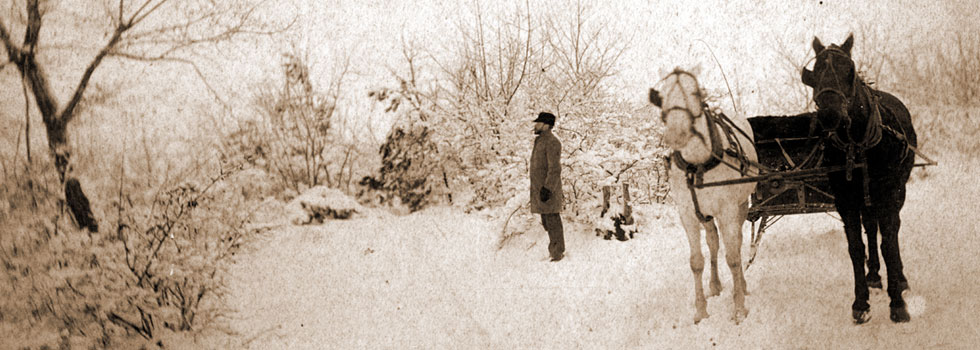
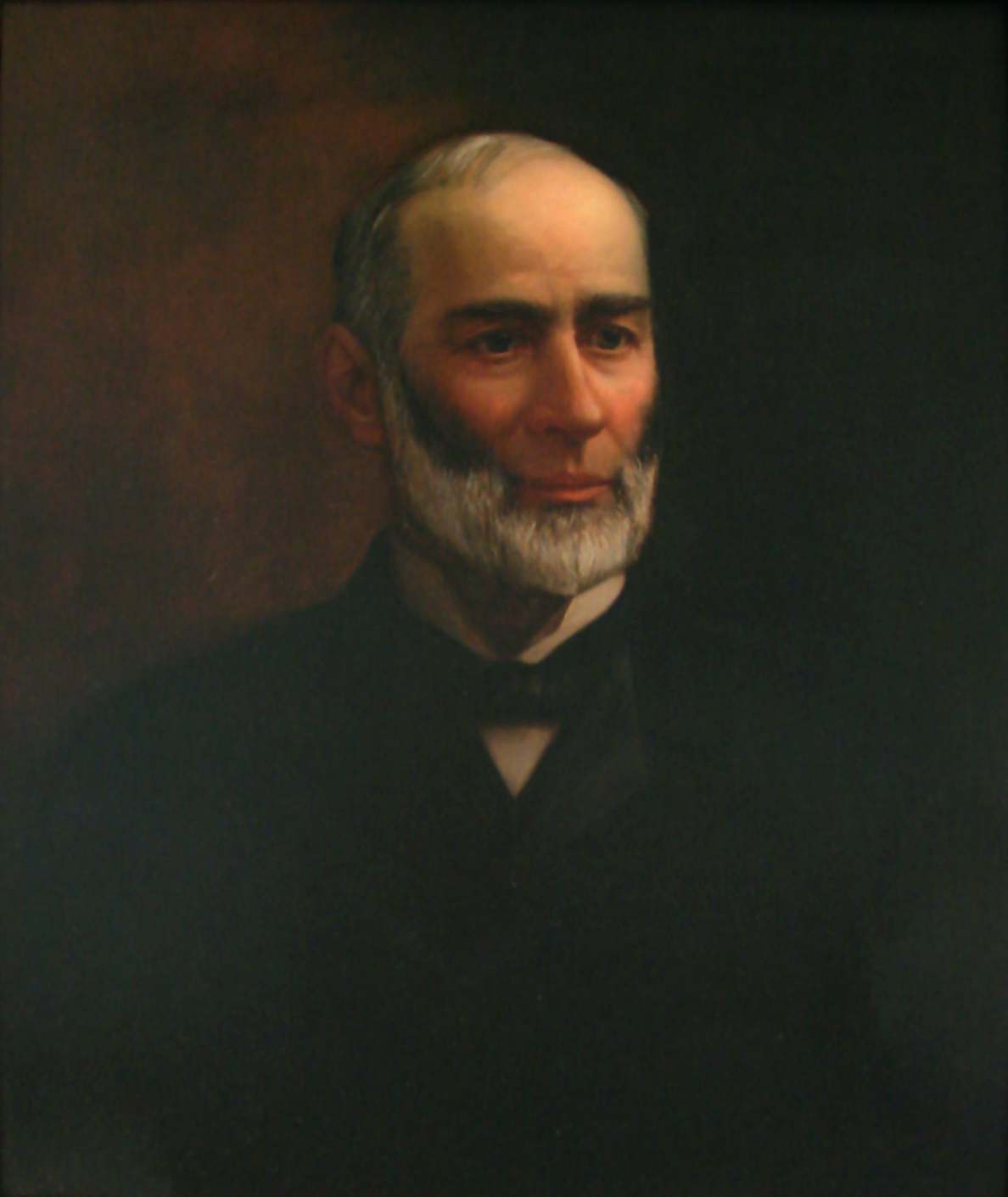

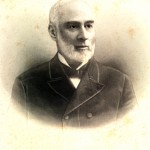
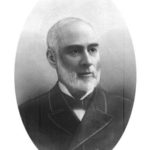
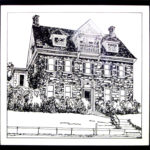
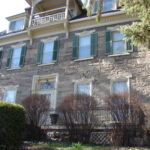

Hello Karen!
I’m Sue Kellerman, Historian/Librarian of the Bellefonte Chapter DAR. I contacted you several years ago about using a picture of Caroline for one of our Chapter calendars.
I’m writing you today to let you know the Bellefonte Chapter is planning to update/move the plaque honoring Caroline as our first Chapter Regent later this year.
I’d like to share our ideas and plans with you and your family.
Please email me at your convenience.
All the best,
Sue
Sue Kellerman
Bellefonte Chapter DAR
Historian/Librarian
LSK3@psu.edu
Greetings Karen. A few years ago you and family members visited our home in Bellefonte (the A.O. Furst home, 1864). I am chairing a committee to build a bandshell in Talleyrand Park and was wondering if you could help me identify individuals and organizations that might be interested in helping/making contributions. Thanks.